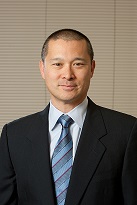Seven gastroenterologists discuss some of the potential areas for innovation in the GI field.
Ask a Gastroenterologist is a weekly series of questions posed to GI physicians around the country on business and clinical issues affecting the field of gastroenterology. We invite all gastroenterologists to submit responses.
Next week's question: How do you think a physician shortage would affect the GI specialty?
Please submit responses to Carrie Pallardy at cpallardy@beckershealthcare.com by Thursday, February 19, at 5 p.m. CST.
 William D. Chey, MD, AGAF, FACG, FACP, RFF, Director, GI Physiology Laboratory, Co-director, Michigan Bowel Control Program, University of Michigan Health System (Ann Arbor): My Total Health is a health information technology start-up founded by researchers at the University of Michigan and Cedars Sinai Medical Center in Los Angeles. The company's first product, My GI Health is reimagining the way that patients understand their GI illness experience and interface with healthcare providers. My GI Health utilizes the NIH Patient Reported Outcomes Measurement Information System (PROMIS®) scales to assess a user's gastrointestinal symptoms. Proprietary algorithms allow My GI Health to focus on the symptoms that are present and ignore the ones that aren't. Information gathered by the system is integrated into an instant history of present illness, which can help a patient to prepare for their visit with a healthcare provider and help healthcare providers to quickly understand not only the reason for a visit, but also the depth and breadth of a patient's GI symptoms.
William D. Chey, MD, AGAF, FACG, FACP, RFF, Director, GI Physiology Laboratory, Co-director, Michigan Bowel Control Program, University of Michigan Health System (Ann Arbor): My Total Health is a health information technology start-up founded by researchers at the University of Michigan and Cedars Sinai Medical Center in Los Angeles. The company's first product, My GI Health is reimagining the way that patients understand their GI illness experience and interface with healthcare providers. My GI Health utilizes the NIH Patient Reported Outcomes Measurement Information System (PROMIS®) scales to assess a user's gastrointestinal symptoms. Proprietary algorithms allow My GI Health to focus on the symptoms that are present and ignore the ones that aren't. Information gathered by the system is integrated into an instant history of present illness, which can help a patient to prepare for their visit with a healthcare provider and help healthcare providers to quickly understand not only the reason for a visit, but also the depth and breadth of a patient's GI symptoms.
A recent study published in the American Journal of Gastroenterology found that histories obtained by My GI Health were more complete, better organized and more useful than histories written by gastroenterology fellows and attending physicians (Am J Gastroenterol 110: 170-179). Another study, which will be presented at Digestive Diseases Week 2015, found that My GI Health more reliably and completely documented the presence of "warning signs" than histories written by physicians. The information gathered by the system informs the creation of an individualized "education prescription" consisting of high quality, evidence-based animations and text materials to help a patient better understand the possible causes of and solutions for their GI symptoms. The My GI Health app is expected to be released in 2015. To learn more about My GI Health, please go to: https://www.youtube.com/watch?v=OWPi0oT8sEQ
 Larry Good, MD, FACG, founder, CEO Good Pharmaceutical Development, CEO, Compassionate Care Center of New York: Opportunities for innovation in gastroenterology are numerous but can be grouped in two categories: improved endoscopic techniques from both a diagnostic and therapeutic perspective and improved understanding of gastrointestinal pathophysiology leading to improved therapeutics and clinical outcomes.
Larry Good, MD, FACG, founder, CEO Good Pharmaceutical Development, CEO, Compassionate Care Center of New York: Opportunities for innovation in gastroenterology are numerous but can be grouped in two categories: improved endoscopic techniques from both a diagnostic and therapeutic perspective and improved understanding of gastrointestinal pathophysiology leading to improved therapeutics and clinical outcomes.
Over the past decade, we have seen dramatic improvements in endoscopic imaging with improved digital imaging. This technology will continue to improve, but must be paired with other diagnostic techniques such as more widespread utilization of chromoendoscopy to identify subtle, flat or depressed lesions and confocal endoscopy, which can almost bring the pathology lab into the endoscopy unit. Advanced therapeutics in endoscopy will include improved endoscopic treatment for Barrett's esophagus, anti-reflux procedures, endoscopic bariatric procedures and improved control of GI bleeding.
From a pathophysiologic perspective, there is a growing acknowledgement that many gastrointestinal disorders ranging from food intolerance to irritable bowel syndrome and inflammatory bowel disease may be the product of intraluminal events influenced by the intestinal microbiome, intraluminal pro-inflammatory mediators, interaction of gut micro-organisms and dietary factors, as well as inflammatory changes at the gut-mucosal interface altering tight junctions between cells. An improved understanding of these factors may result in increased value of non-traditional treatments such as dietary manipulation and medical foods to treat common gastrointestinal disorders.
 Thomas W. Rohde, MD, ABAARM, Renew Total Body Wellness Center (Decatur, Ill.): With 23 million Americans not getting screened for colorectal cancer, there is a significant and immediate need for more patient-friendly screening options. While colonoscopy remains the standard, with so many people not getting screened, there is ample opportunity to look for new ways to detect colon cancer that is more appealing to the patient.
Thomas W. Rohde, MD, ABAARM, Renew Total Body Wellness Center (Decatur, Ill.): With 23 million Americans not getting screened for colorectal cancer, there is a significant and immediate need for more patient-friendly screening options. While colonoscopy remains the standard, with so many people not getting screened, there is ample opportunity to look for new ways to detect colon cancer that is more appealing to the patient.
One recent innovation in regards to screening for colon cancer is Cologuard, also known as stool DNA (sDNA) testing. Every day, cells are shed from the colon wall during the digestion process. As part of this process, normal cells along with altered cells from pre-cancer or cancers are shed into the colon. The stool picks up those cells as it passes through the colon, and these cells can now be detected through sDNA. sDNA analyzes both blood biomarkers and stool DNA and uses multiple-marker, sDNA technology incorporating 11 distinct biomarkers and DNA methylation and mutation biomarkers known to be associated with colorectal cancer and precancerous polyps.
Offered by prescription, the test allows the patient to collect a sample of their stool in the comfort of their home and then send it to a lab where it is analyzed. A negative test result means that there was no abnormal DNA and/or blood in the sample. A positive Cologuard test means that the test detected abnormal DNA and/or blood that could be caused by advanced adenomas or cancer in the colon or rectum. Only with a positive result does the patient have to undergo a diagnostic colonoscopy. Cologuard represents an important scientific achievement and major advancement in the battle against colorectal cancer and will hopefully serve as the catalyst for even more accurate, easy to use screening options to be developed in the future.
 Julie C. Servoss, MD, MPH, Medical Director, EMA Gastroenterology, Modernizing Medicine: I see two major opportunities for technology and informatics innovation in the GI field. First, given CMS' recent announcement that it will move from volume to value-based payments beginning in 2016, it will be critical for gastroenterologists to strategically identify and use electronic health record platforms that capture structured data in a seamless way, both during office visits and during procedures. EMA Gastroenterology by Modernizing Medicine already has the ability to capture this type of data without extra work on the part of the physician and staff. Physicians using this technology will have the ability to insulate themselves against further reimbursement cuts. For gastroenterologists that do not have the ability to easily capture data and track outcomes on each patient, their practice and revenue cycle management will come to a screeching halt in 2016.
Julie C. Servoss, MD, MPH, Medical Director, EMA Gastroenterology, Modernizing Medicine: I see two major opportunities for technology and informatics innovation in the GI field. First, given CMS' recent announcement that it will move from volume to value-based payments beginning in 2016, it will be critical for gastroenterologists to strategically identify and use electronic health record platforms that capture structured data in a seamless way, both during office visits and during procedures. EMA Gastroenterology by Modernizing Medicine already has the ability to capture this type of data without extra work on the part of the physician and staff. Physicians using this technology will have the ability to insulate themselves against further reimbursement cuts. For gastroenterologists that do not have the ability to easily capture data and track outcomes on each patient, their practice and revenue cycle management will come to a screeching halt in 2016.
The second major opportunity is in mobile technology. Most existing EHR systems help gastroenterologists electronically document visits in the office setting, the ambulatory surgery center and the hospital. Usually, there is a different EHR system at each location and the systems are not integrated, meaning there is no communication among the systems. This leads to staff losing precious time re-documenting patient information. No one has taken into account that gastroenterologists are frequently on the road going from the office to ASC to hospital and back again. Mobile technology, such as PocketEMA, where physicians can access patient visits, important medical information and even ePrescribe on the road, makes gastroenterologists more efficient and more productive, and facilitates more timely care to patients. Having one system, like EMA, potentially link all three settings would be an incredibly powerful tool for gastroenterologists.
 Sidhartha Sinha, MD, Stanford (Calif.) Health Care: The field of gastroenterology abounds with exciting research that will ultimately allow us to deliver better care for our patients. The breadth of the research and the enormous impact on patient health is what make, GI, in my opinion, one of the most stimulating medical specialties. From immune-mediated diseases to viral hepatitis to novel methods to detect cancerous and precancerous lesions in patients, researchers at Stanford are working to dramatically reduce the burden of GI disease.
Sidhartha Sinha, MD, Stanford (Calif.) Health Care: The field of gastroenterology abounds with exciting research that will ultimately allow us to deliver better care for our patients. The breadth of the research and the enormous impact on patient health is what make, GI, in my opinion, one of the most stimulating medical specialties. From immune-mediated diseases to viral hepatitis to novel methods to detect cancerous and precancerous lesions in patients, researchers at Stanford are working to dramatically reduce the burden of GI disease.
There is no scarcity of transformative innovation in GI. For example, novel therapeutics in inflammatory bowel disease are being developed that will allow patients to control their often debilitating disease with therapeutics that act more locally, reducing systemic side effects. In hepatitis C, drug discovery has allowed us to dramatically improve the treatment options to patients with all-oral drug regimens that radically improve the effectiveness and tolerability of treatments for one of the largest causes of liver disease in the United States. New imaging modalities, such as near-infrared fluorescent probes, are allowing physicians to detect malignant and pre-malignant polyps better than existent technologies. Researchers at Stanford play pivotal roles in these discoveries and many other areas of GI innovation and are motivated by the opportunity to translate them to improved and cost-effective patient care.
 Patrick Takahashi, MD, CMIO and Chief of Gastroenterology Section of St. Vincent Medical Center (Los Angeles): Innovation and gastroenterology are two terms which frequently juxtapose well with each other. We often think of gastroenterology as a procedure and technological oriented specialty. Along those lines, there is tremendous potential for improving such bread-and-butter procedures as esophagogastroduodenoscopy and colonoscopy.
Patrick Takahashi, MD, CMIO and Chief of Gastroenterology Section of St. Vincent Medical Center (Los Angeles): Innovation and gastroenterology are two terms which frequently juxtapose well with each other. We often think of gastroenterology as a procedure and technological oriented specialty. Along those lines, there is tremendous potential for improving such bread-and-butter procedures as esophagogastroduodenoscopy and colonoscopy.
Already, gastroenterologists are called upon to do more with the scope than ever before, often times obviating the need for surgery via procedures such as endoscopic mucosal resection and dissection. I anticipate that there will continue to be advancements made in these techniques to decrease the reliance on surgeries and their inherent morbidities. That being said, with a greater push being made for natural orifice surgeries, gastroenterology may witness a resurgence as there will be more demand for shortening global length of stays in the hospital. By accessing the abdomen and pelvis via the gastrointestinal tract, the practice of surgery can truly improve and reach a standard that the 21st century would be proud of.
Other opportunities for innovation may come through non-invasive techniques in performing endoscopic procedures. With continued improvements in robotics and remove controlled devices, it is not too far-fetched to imagine a blue tooth controlled device in the near future, projecting images to the operator anywhere in the world. Innovation can also manifest itself in improved ways of dictation and documentation for the gastroenterologist as the requirements for value based medicine continue to grow in scope. Lastly, there will need to be continued improvements in the detection of abnormal lesions such as adenomas during procedures to maximize utility to patients.
 David L. Vastola, DO, Your Good Health Medical Group (Palm Beach Gardens, Fla.): As a prior university professor of gastroenterology who is now teaching at a community college on this topic, the clearest avenue for innovation is in nutritional therapies. I'm not talking about hyperalimentation, but actual outpatient supplements to help patients with pancreatitis, ulcer disease, colitis, cancer prevention, GERD and more. People are on the hunt to find doctors that understand these nutritional options, and know how to allocate them. Besides being cheap and without side effects, dietary supplements work and can be prescribed with standard therapies. My next book, Fountain of Youth: Nutritional Therapies (July 2015 release), has a whole chapter on how people can benefit from this approach.
David L. Vastola, DO, Your Good Health Medical Group (Palm Beach Gardens, Fla.): As a prior university professor of gastroenterology who is now teaching at a community college on this topic, the clearest avenue for innovation is in nutritional therapies. I'm not talking about hyperalimentation, but actual outpatient supplements to help patients with pancreatitis, ulcer disease, colitis, cancer prevention, GERD and more. People are on the hunt to find doctors that understand these nutritional options, and know how to allocate them. Besides being cheap and without side effects, dietary supplements work and can be prescribed with standard therapies. My next book, Fountain of Youth: Nutritional Therapies (July 2015 release), has a whole chapter on how people can benefit from this approach.


